|
|
|
|
Spring 2017 | Issue #8
IN FOCUS: the Faculty of Arts & Science Newsletter
Wednesday, January 3, 2017
|
|
|
From the Dean
|
 |
| |
Early in the Fall Term I received a recommendation for a book through Amazon from a retired faculty, The Slow Professor: Challenging the Culture of Speed in the Academy. At first, I was not sure what was being implied of me by such a recommendation. I never thought I moved too quickly but perhaps I was too slow, not in the best sense of the word. I have since ordered the book and began reading it during the November Reading Break, but quickly put it down out of frustration, but have since picked it up again, and am now moving slowly through the book, even though it is a rather thin volume: a thin tome in the Callimachean tradition perhaps is in keeping with the Slow Philosophy espoused in the book.
My initial, perhaps angered reaction to the book, stemmed from the fact that the authors of
The Slow Professor, M. Berg and B.K. Seeber, are deeply influenced, it seems, by a number of works that have come out in last decade or more that speak against what they see as corporatization of the university and its deleterious effects on the Academy. They set up a dichotomy between us the corporate administration and the faculty, not taking into account that the “us” of administration are ourselves academics, who began our careers as academics never with any intention of moving up the corporate ladder. “Being Dean” was certainly not something I thought about when I was working on my dissertation, and somedays I wonder why I ever let the thought pop into my head, after becoming faculty. Statements like, “the very idealism that drives intellectual and pedagogic endeavours is easily manipulated by the university, which, like many other corporations, uses rhetoric of family and
community, ‘to solidify company cultures’” (p.17) or “it seems that in the corporate university it’s every academic for himself” (p. 18), needless to say, at first annoyed me. No doubt, over the last twenty-five years (the life of my career so far) the Academy has changed. “For better or worse” is a debate we can have. I would venture to say there has never been a golden age of the Academy, and to be fair neither do the authors of Slow Professor suggest this.
Funding models certainly have changed, both how universities are funded more generally (operating and capital) and more specifically for research. In the case of the latter, a lot of this is driven by government and government agencies, and their priorities, and if universities do not adapt, they must do without. But I would suggest that adaptation is often a matter of rhetoric and how we rhetorically frame ourselves, and does not necessarily mean we have to change our research or how we do research or the kinds of research we do. In chapter three, “Research and Understanding”, Berg and Seeber explore the impact of corporatization on research. They argue that “rebranding scholars as key players in the knowledge economy, the corporate university emphasizes instrumentalism and marketability” (53), the consequence of which is “privileging certain forms of knowledge above others” (p. 54).
“Since the existing funding structures do not serve all research interests equally (even within the same discipline), they shape the research undertaken” (54). They lament “the increasingly managerial model of research [that] shifts the focus away from those doing scholarship and creates faculty compliance with institutional imperatives” (54). They also voice their concern about institutional strategic plans which sees universities organize their priorities around strategically focused areas (54). But I see these documents as important rhetorical tools, needed in the face of dwindling resources and demands for greater accountability. Berg and Seeber suggest adapting language, when you speak about research, that lays aside “inappropriate utilitarian vocabulary” (56) but emphasizes the goal of scholarship, particularly in the humanities, as “understanding” rather than “knowledge” (55). I
would not disagree but only suggest that how we “translate” our research and scholarship is a matter of rhetoric. As a Classicist, I can describe my research equally as “knowledge mobilization” or “deepened understanding”. Either phrase will not change what I do or the value of what I do, but may help those on the outside better understand and appreciate what I do. Perhaps their greatest concern with corporatization is that it “has engendered race against time with important consequences for the quality of our working lives and the quality of our scholarship” (54) and suggest a series of “slow” steps to address this (64-70). I would, however, caution against using Horace as a model, mentioned under their first slow step, Just Wait (64). Horace in the Ars Poetica
(387-390) recommends waiting nine years between writing a text and publishing it. After all Horace worked under a patron, the emperor Augustus and in the end was exiled; whether literally or figuratively, is a debate among Latin scholars. At any rate, I would agree with the authors that “the corporate jargon focuses on research ‘output’ above other parts of our work, such as teaching”, and can lead, in the words of Coleman and Kamboureli, whom they quote (56), to “‘teaching and learning … [being] increasingly seen as tangential spinoffs from discovery or applied research’” and ‘‘the neglect of undergraduate education’’ (quoting Pocklington and Tupper).
Despite my initial reaction, the book has challenged me to recall why I entered the Academy, and what was it that enticed me to pursue this career, and what about it brought me pleasure. In chapter 1, “Time Management and Timelessness”, the authors argue that as academics we need to slow down and find “timeless time that fosters creativity, original thinking and joy” (22). Paradoxically “timeless time” can actually increase productivity. In chapter two, “Pedagogy and Pleasure”, I was struck by their point that “students’ intelligence depends on the context and is particularly susceptible to the emotions generated by the group” (36). Student evaluations, they suggest, demonstrate “the pervasiveness of emotions in the classroom” and “students make no distinction between how they felt in the course and how they thought; their emotions … were integral to how they learned” (36).
Enjoying teaching, they suggest, “will not only benefit our students but may combat the negative effects of the current academic climate’ (40). Indeed, I felt something of that joy, when I was reading Greek with my students. We were reading the letter of Ignatius of Antioch to the Church at Rome. In that letter Ignatius passionately articulates his deep desire to face martyrdom. I had never read the text before and found pleasure as my students and I worked through the Greek text together. The details of letter are in many respects morbid and we were somewhat bemused, but in that moment we caught a glimpse of the intense feelings of a man, who with every word he wrote was hardening his resolve, as he made his way to Rome to face certain death. That experience was transcendent; that “ah” moment that reminds us why we do what we do, and should be the experience of every student and
faculty member alike. Perhaps there is hope for this “corporate” dean after all.
Craig Cooper
Dean, Arts & Science
References
M. Berg and B.K Seeber, The Slow Professor: Challenging the Culture of Speed in the Academy. Toronto: University of Toronto Press, 2016.
D. Coleman and S. Kamboureli (eds.). Retooling the Humanities: The Culture of Research in Canadian Universities. Edmonton: university of Alberta Press, 2012.
T.C Pocklington and A. Tupper. No Place to Learn: Why Universities Aren’t Working. Vancouver: University of British Columbia Press, 2002
Go To Top
|
|
|
Community Outreach
PUBlic Professor Series 2016-2017
The PUBlic Professor Series is back in action for the New Year! The upcoming lectures are sure to be thought-provoking and encourage open conversation. No matter what, there will be something for everyone. See the lineup below.
 January 26, 2017 Dr. Janay Nugent, History January 26, 2017 Dr. Janay Nugent, History
Converting a Nation: family, religion and Calvinism in sixteenth and seventeenth-century Scotland
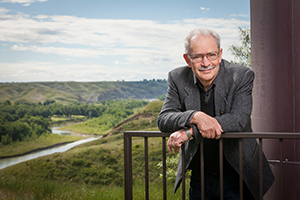 February 16, 2017 Dr. Kent Peacock, Philosophy February 16, 2017 Dr. Kent Peacock, Philosophy
Alberta in the Anthropocene
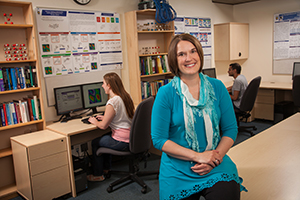
March 23, 2017 Dr. Stacey Wetmore, Chemistry & Biochemistry
DNA Damage, Repair and Disease: How Computers Can Help Us Understand
Take a look at our first three talks:
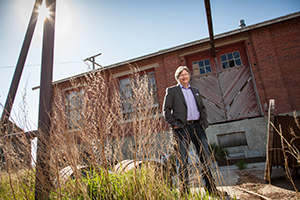 September 22, 2016 September 22, 2016
Dr. Kevin McGeough, Geography & Archaeology
'I met a traveller from an antique land': The Archaeology of Progress, Decline and Collapse
October 20, 2016 Dr. Roy Golsteyn, Biological Sciences 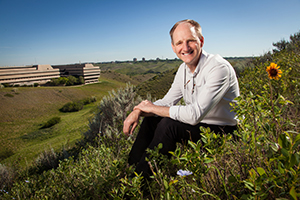
Flower Power: A scientific search for new medicine in Prairie Plants
November 24, 2016 Dr. Goldie Morgentaler, English
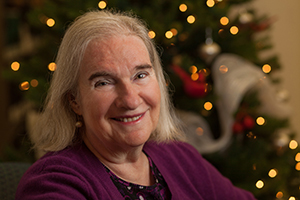 How Dickens Invented Christmas – and Why it Matters How Dickens Invented Christmas – and Why it Matters
If you missed a talk, or just want to hear it again, you can visit After The Talk, where you will find videos for each of our PUBlic Professor lectures. Research stories from each lecture can also be found below:
Sign-up for the mailing list and never miss a thing!
Notable Mentions
December 15, 2016 | 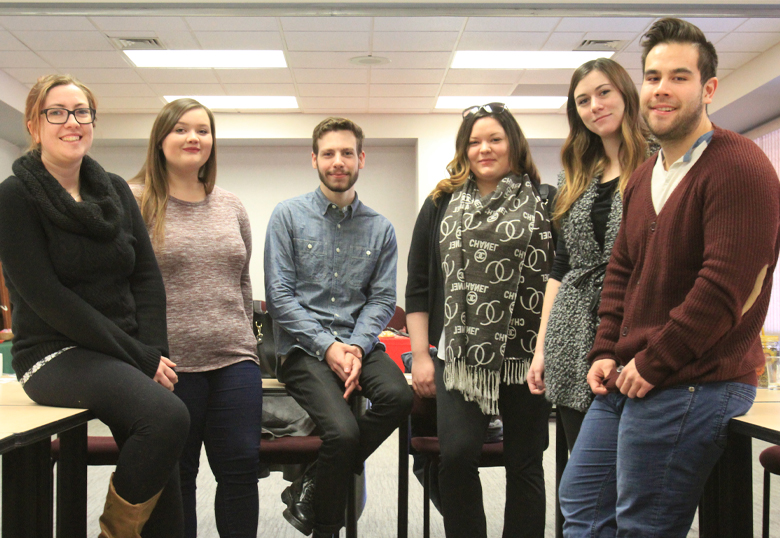 U of L Students present to Age Friendly Lethbridge U of L Students present to Age Friendly Lethbridge
The students in Dr. Jennifer Mather's Psychology of Aging class looked at aging in various cultures
December 9, 2016 | 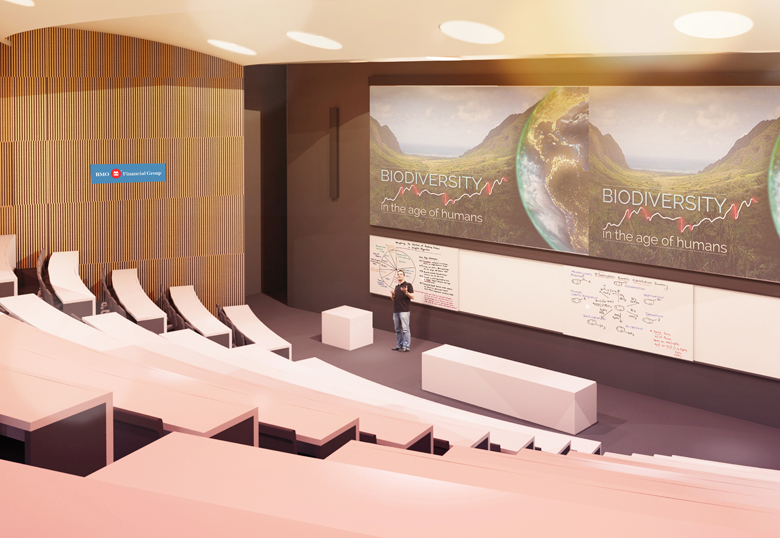 University of Lethbridge welcomes BMO Financial Group as sponsor for Destination Project University of Lethbridge welcomes BMO Financial Group as sponsor for Destination Project
BMO Financial donates $1 million to fund construction of new state-of-the-art science building
November 29, 2016 | 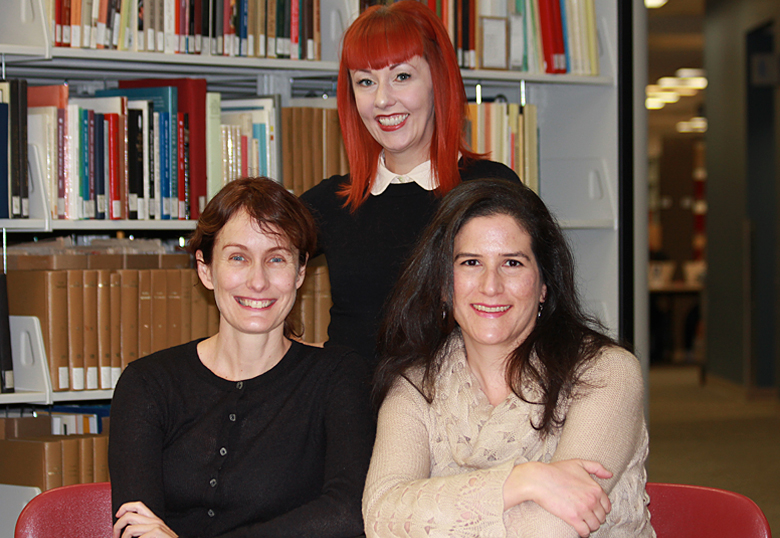 Three U of L professors examine Western Canada during the First World War Three U of L professors examine Western Canada during the First World War
Drs. Amy Shaw, Kristine Alexander and Elizabeth Galway will share their research into the effects of the First World War on those on the home front
November 21, 2016 | 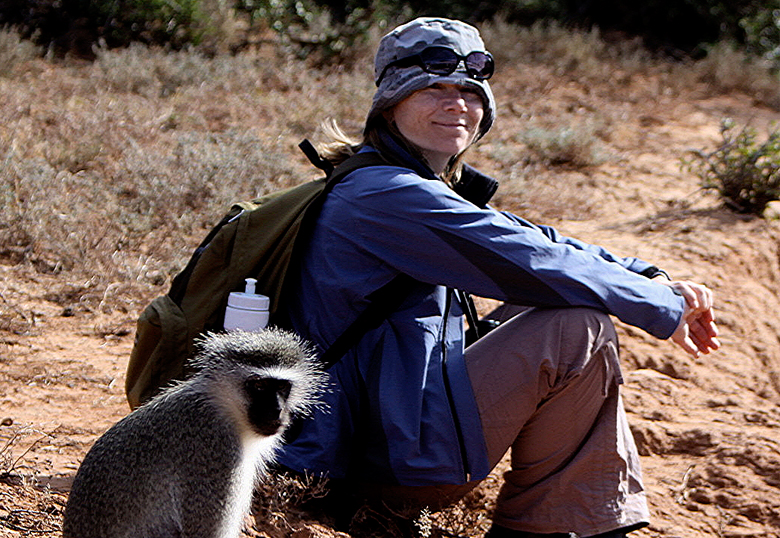 U of L scientists to be featured on The Nature of Things U of L scientists to be featured on The Nature of Things
The work of Drs. Andrew Hurly, Louise Barrett and Sergio Pellis is highlighted in Think Like an Animal, airing on The Nature of Things
November 17, 2016 | Morgentaler revels in the beauty of literature
Dr. Goldie Morgentaler examines Dickens' classic novella A Christmas Carol in the latest PUBlic Professor Series lecture
November 10, 2016 | 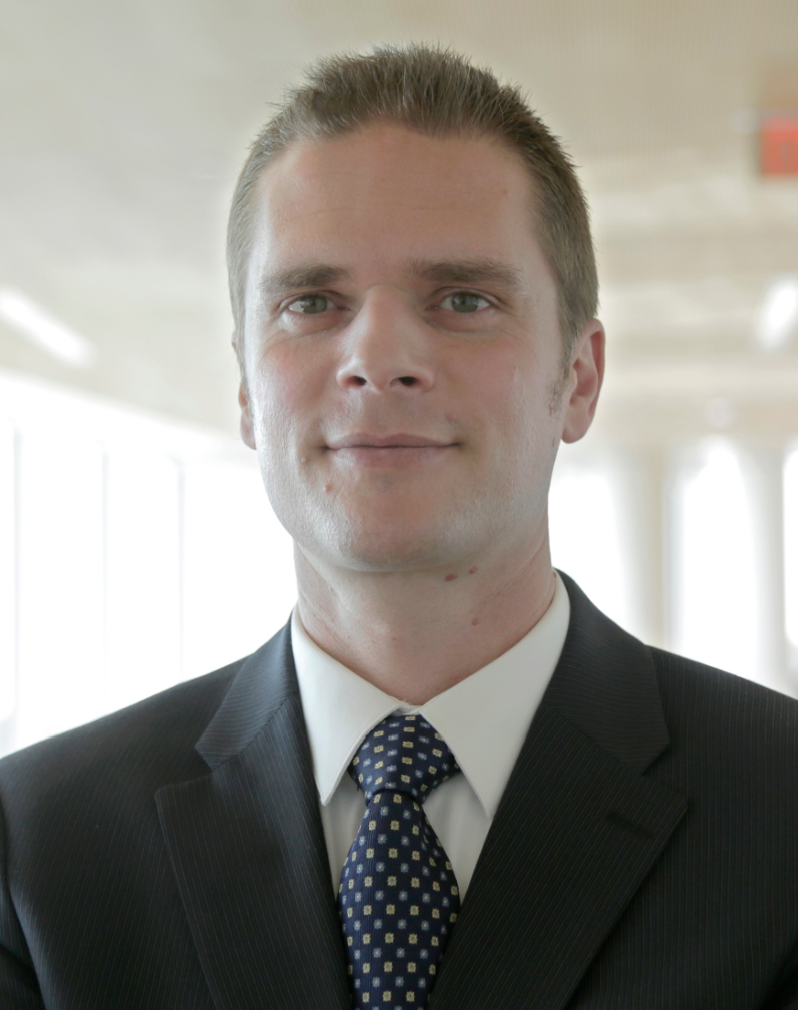 Alberta RNA Research and Training Institute welcomes Gairdner Award winner for public lectures Alberta RNA Research and Training Institute welcomes Gairdner Award winner for public lectures
Dr. Rodolphe Barrangou is renowned for his work in establishing and characterizing the CRISPR-Cas bacterial immune defense system
October 27, 2016 | Second annual agribusiness case competition draws a dozen teams
More than 50 university and college students will take part in the second annual agribusiness case competition
October 14, 2016 | Prairie view opens new research frontier for Golsteyn
Dr. Roy Golsteyn and his lab are utilizing the unique plant species of southern Alberta in a quest to find chemicals with anti-cancer properties
October 13, 2016 | 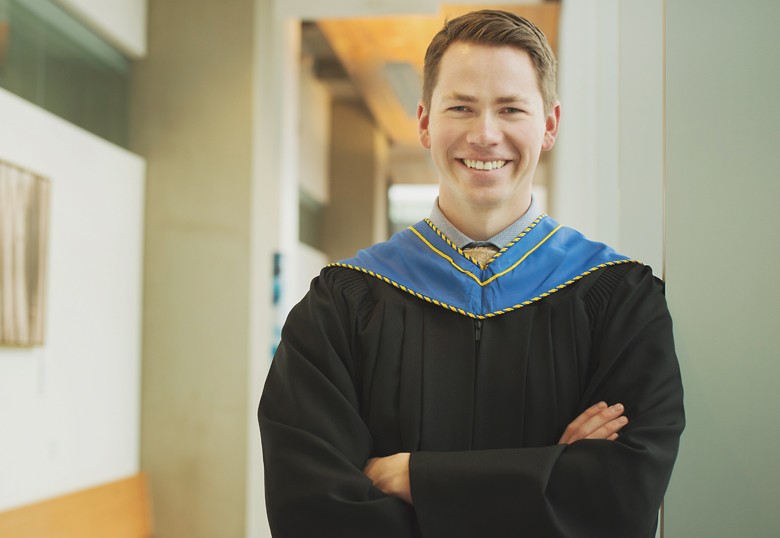 Research opportunities helped pave the way to medical school for new graduate Kiss Research opportunities helped pave the way to medical school for new graduate Kiss
The ability to plan and develop his own research project proved to be beneficial to his development as a student
September 21, 2016 | University hits record enrolment figure
A record total of 8,628 students are currently registered at the U of L’s Lethbridge and Calgary campuses, representing an increase of 2.1 per cent over Fall 2015
September 16, 2016 | PUBlic Professor series promising another stellar lineup
Dr. Kevin McGeough opened the series on Thursday, Sept. 22 discussing the lessons of archaeology
September 15, 2016 | Province extends funding for mental health initiatives on campus
The province is investing $3.6 million this year to support much needed mental health programming, education and student outreach efforts
September 14, 2016 | McGeough uncovering lessons from our past
Dr. Kevin McGeough kicked off this year's PUBlic Professor series on Thursday, Sept. 22
September 7, 2016 | Crossing Boundaries symposium to explore the future of technology in the arts
Crossing Boundaries: Technology in the Arts took place October 28-29 in the University of Lethbridge Centre for the Arts
Events
The Prentice Institute for Global Population and Economy will continue their Brown Bag Lecture Series in 2017, beginning with a lecture by Dr. Rumi Graham entitled Copyright and your next scholarly publication: What are your choices for Open Access publishing?
This talk will take place on Thursday, January 19, 2017 from 12:15-1:30pm in L950. For complete details and more information about upcoming lectures, please visit the website or the Notice Board or follow them on Twitter.
The Modern Languages Speaker Series will continue in the New Year with the following talks:
January 18, 2017 12 - 1:00 p.m.
Beth Gerwin
(Over)Valuing the Body: Prostitution and Narcissism in Balzac and Zola
February 22, 2017 12 - 1:00 p.m.
Fangfang Li
Speech Production of Children Enrolled in French Immersion Schools in Southern Alberta
March 22, 2017 12 - 1:00 p.m.
Luz Janeth Ospina
How to Flirt in Spanish: Cultural, Pragmatic and Pedagogical
Perspectives
For complete details, please visit the website.
Go To Top
|
|
|
Students – what are they up to?
November 22, 2016 | Pronghorns set new mark for Academic All-Canadians
A total of 63 athletes have achieved Academic All-Canadian status, more than 30 per cent of the program's varsity athletes
November 18, 2016 | 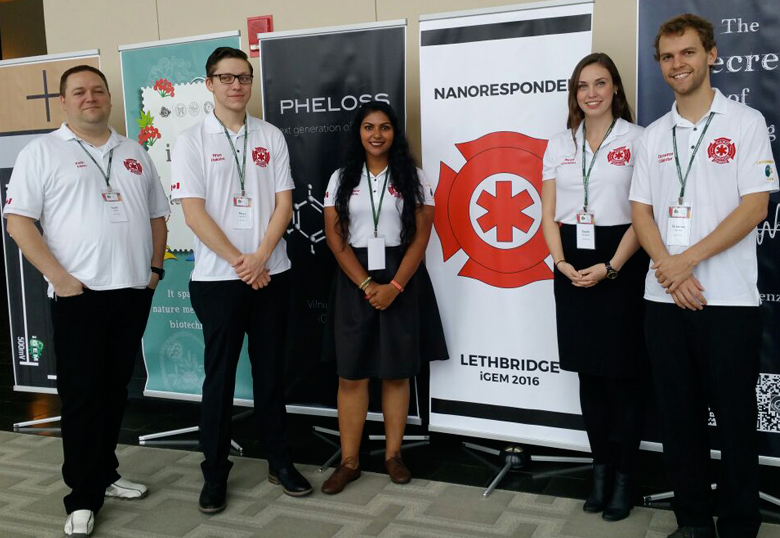 U of L iGEM team golden, now focussed on furthering project with Lethbridge Fire and EMS U of L iGEM team golden, now focussed on furthering project with Lethbridge Fire and EMS
The team was tasked with characterizing the microbial community within ambulances and then developing an intuitive antibody-based strip test for real-time monitoring of the vehicles’ cleanliness
October 17, 2016 | U of L iGEM team gears up for Boston with win at aGEM competition
Competing for the past nine years, U of L teams have excelled on the world iGEM stage, leading all Canadian teams by winning eight gold medals for their innovative work
October 13, 2016 | 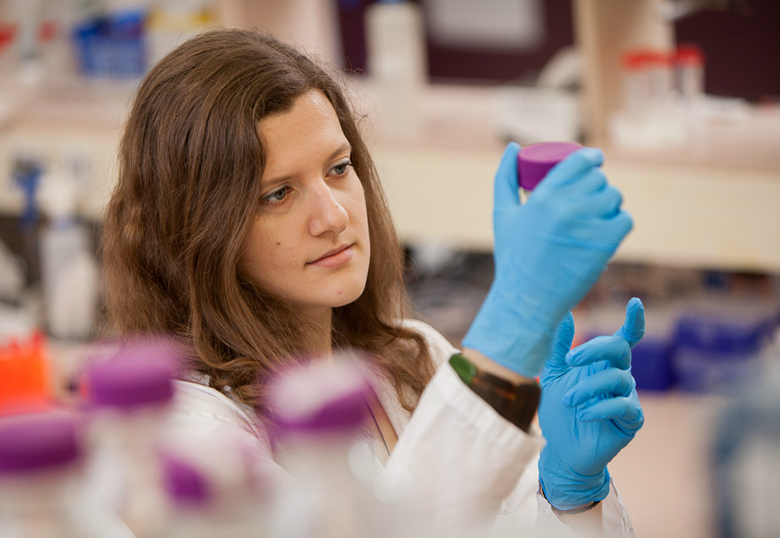 Chemotherapy research program earns Anna Kovalchuk esteemed Vanier Canada Graduate Scholarship Chemotherapy research program earns Anna Kovalchuk esteemed Vanier Canada Graduate Scholarship
Kovalchuk is currently working on completing her doctoral degree under the supervision of Drs. Bryan Kolb and Robbin Gibb
Notable Mentions
History
Diane McKenzie won the Parkland Institute’s Graduate Award for 2016-2017.
Brett Clifton had a chapter published in the collection "The Frontier of Patriotism: Alberta in the First World War" (University of Calgary Press)
Paul Esau was invited (and funded) by the Laurier Centre for Military, Strategic and Disarmament Studies to attend "The Landmine Treaty Human Security and Canada in the Twenty First Century" in Ottawa.
Shannon Ingram presented the paper “Historical and Contemporary Perspectives on Reproductive and Fetal Rights Activism in Southern Alberta” for the University of Alberta Conference History of Women’s Social and Political Activism in Western Canada. She also gave a public talk at the Galt Museum on her work with the Coyote Flats project.
On October 28-29, 2016 University of Lethbridge History MA student Brendan Cummins participated in the “Ways of Knowing” Conference at Harvard University’s Divinity School. Drawing from his undergraduate Honours Thesis, also completed at Lethbridge, Brendan presented a paper and took part in two days of collaborative and informative discussion with panels and papers across multiple disciplines and on a wide variety of religious topics. The conference was organized by the Science, Religion and Culture program at the Divinity School and was attended by graduate and post-graduate scholars from across North America, Europe, Africa, and the Middle East.
Mathematics & Computer Science
The 2016 Alberta Collegiate Programming Contest took place October 15, 2016. We had four official teams competing against others from the University of Alberta and the University of Calgary.
Team 1 from the University of Lethbridge won the contest today, solving all 9 problems in about 3 and a half hours (this is a 5-hour contest). 2nd and 3rd place teams came from the University of Calgary and the University of Alberta, respectively, each solving 8 problems. The remaining 3 U of L teams also did well, finishing 4th, 7th, and 23rd of 53 teams competing today.
The team members are:
Team 1 (1st): Kai Fender, Brandon Fuller, Lukas Grasse Team 2 (7th): Marko Ilievski, Brandon Robertson, Lyle Snelgrove Team 3 (4th): Soraj Seyed Mahmoud, Cody Barnson, Stephanie McIntyre Team 4 (23rd): Josh Mohan, Daylend de Grasse, Alex Hochheiden
The complete standings and problem set can be found here.
These 4 teams also participated in the annual ACM Rocky Mountain Regional Programming Contest on October 29 in Edmonton.
The 2016 Rocky Mountain Regional Programming Contest took place October 29, 2016. The final standings can be found here.
There were 54 teams in the region, and we had four teams competing. Our team 1 finished 4th in the contest, behind the top teams from University of Alberta, University of Utah, and University of Calgary. The top team solved 8 of 10 problems, while 2nd-5th teams all solved 7 problems with various penalty minutes.
Our team 3 finished 11th, solving 6 problems. Team 2 finished 29th with 3 problems solved, and team 4 finished 42nd with 2 problems solved. The team members were:
U of L 1: Kai Fender, Brandon Fuller, Lukas Grasse
U of L 2: Marko Ilievski, Brandon Robertson, Lyle Snelgrove
U of L 3: Soraj Seyed Mahmoud, Cody Barnson, Stephanie McIntyre
U of L 4: Josh Mohan, Daylend de Grasse, Alex Hochheiden
Philosophy
Three students presented at the Philosophy Colloquium Series:
Thomas Bird, “Taboo Busting—A Case Study”
Joseph McDonald, “Paraconsistent Logics for Non-Classical
Arithmetic”
Nathan Hoffart, "The Epsilon-Operator and Epsilon-Calculus: Some History and Its Role in the Logic Classroom"
For complete details, and to find out more about the Philosophy Colloquium Series, please visit the website.
Go To Top
|
|
|
Research Round-up
December 15, 2016 | 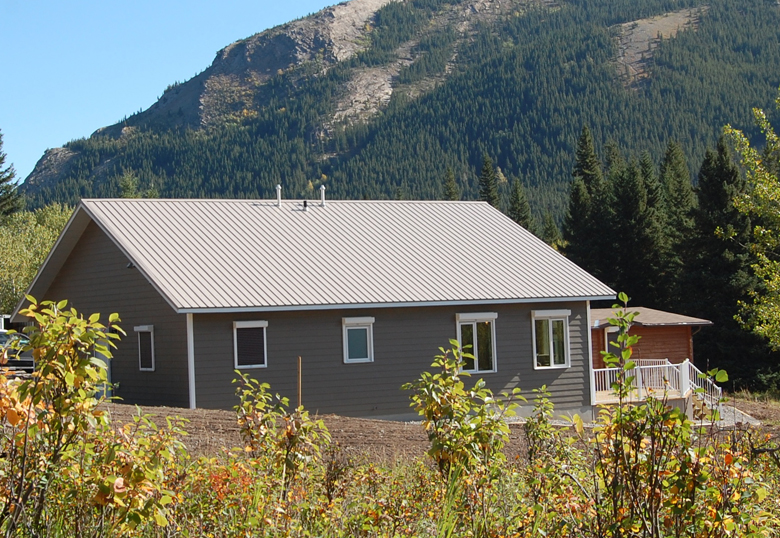 Westcastle Field Station supports research in diverse areas Westcastle Field Station supports research in diverse areas
Renovations completed in 2016 mean better facilities for students and researchers and the capacity to do community outreach
December 2, 2016 | 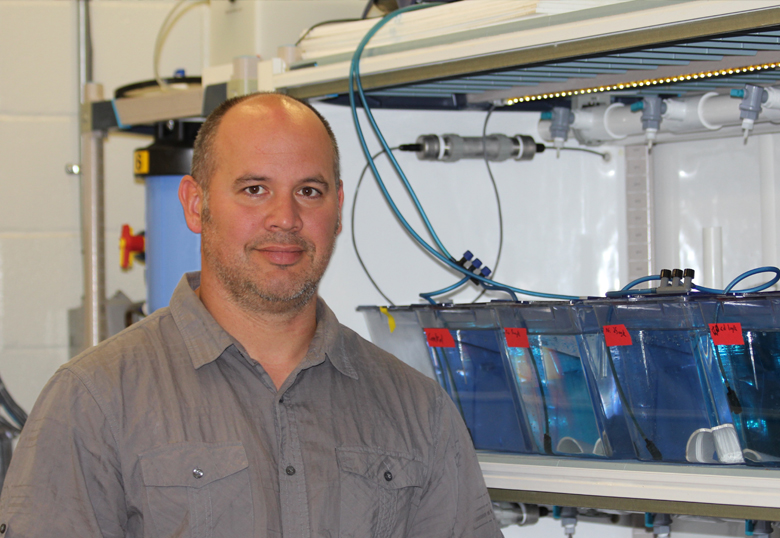 U of L aquatic toxicologist named Canada Research Chair U of L aquatic toxicologist named Canada Research Chair
Dr. Steve Wiseman has been named a Tier II Canada Research Chair in Aquatic and Mechanistic Toxicology
November 23, 2016 | Four research projects boosted by CREDO funding
Dr. Carly Adams is one of four professors to receive research funding through the U of L's CREDO program— deadline for the next round of funding is Nov. 28
November 16, 2016 | 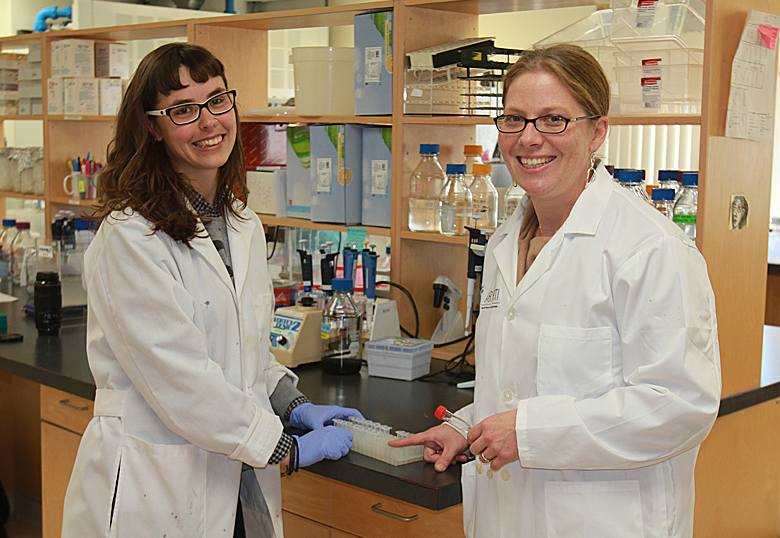 U of L student’s doctoral research published in prestigious science journal U of L student’s doctoral research published in prestigious science journal
RNA research paper published in the National Academy of Sciences
October 31, 2016 | U of L continues to move up in Research InfoSource rankings list
The U of L jumped to third in the country in the 2016 Undergraduate classification, while also moving up a spot to 34th in the overall rankings
October 21, 2016 | Study finds food insecurity issues halved by guaranteed annual income
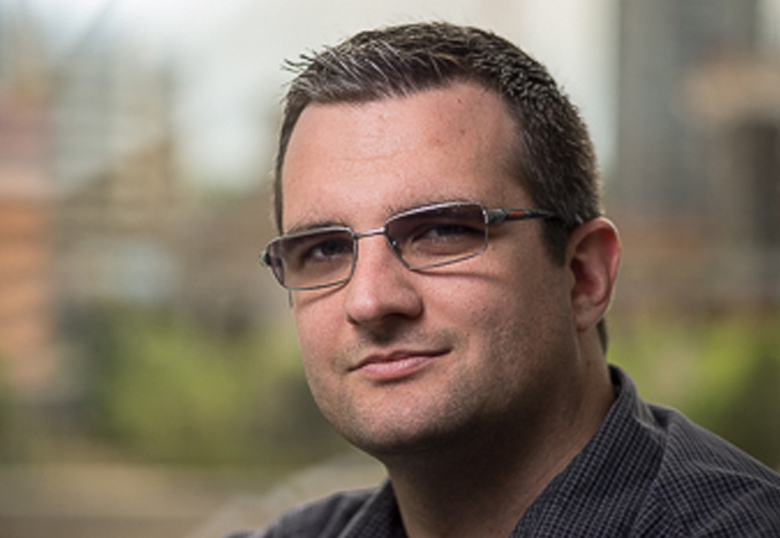 The next question to be asked is why 65 has been established as the golden age for access to the Old Age Security program and whether an age-based demogrant is appropriate The next question to be asked is why 65 has been established as the golden age for access to the Old Age Security program and whether an age-based demogrant is appropriate
October 4, 2016 | New U of L study finds water issues a major concern of housing developers in the Calgary region
 Dr. Lorraine Nicol found that housing developers in the Calgary region face challenges in acquiring water Dr. Lorraine Nicol found that housing developers in the Calgary region face challenges in acquiring water
October 3, 2016 | 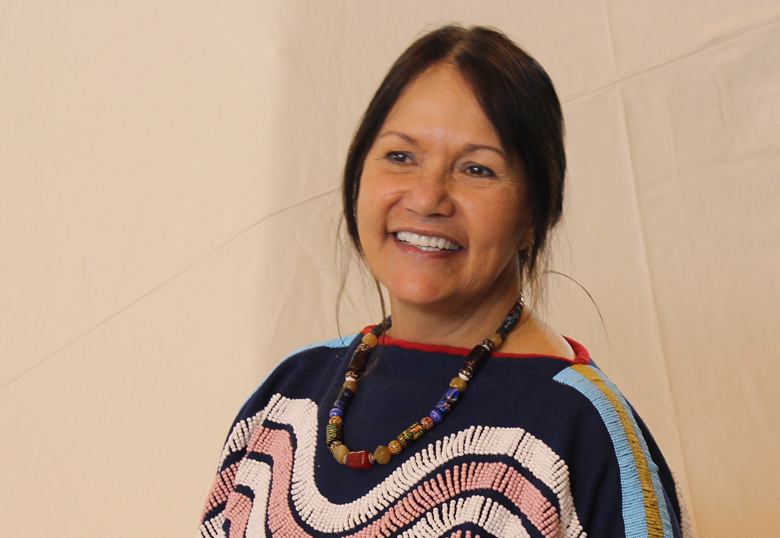 Researchers seek to understand how students share, process information on colonization Researchers seek to understand how students share, process information on colonization
Drs. Linda Many Guns (Native American Studies) and Cheryl Currie (Public Health) seek answers through multidisciplinary approach
September 28. 2016 | 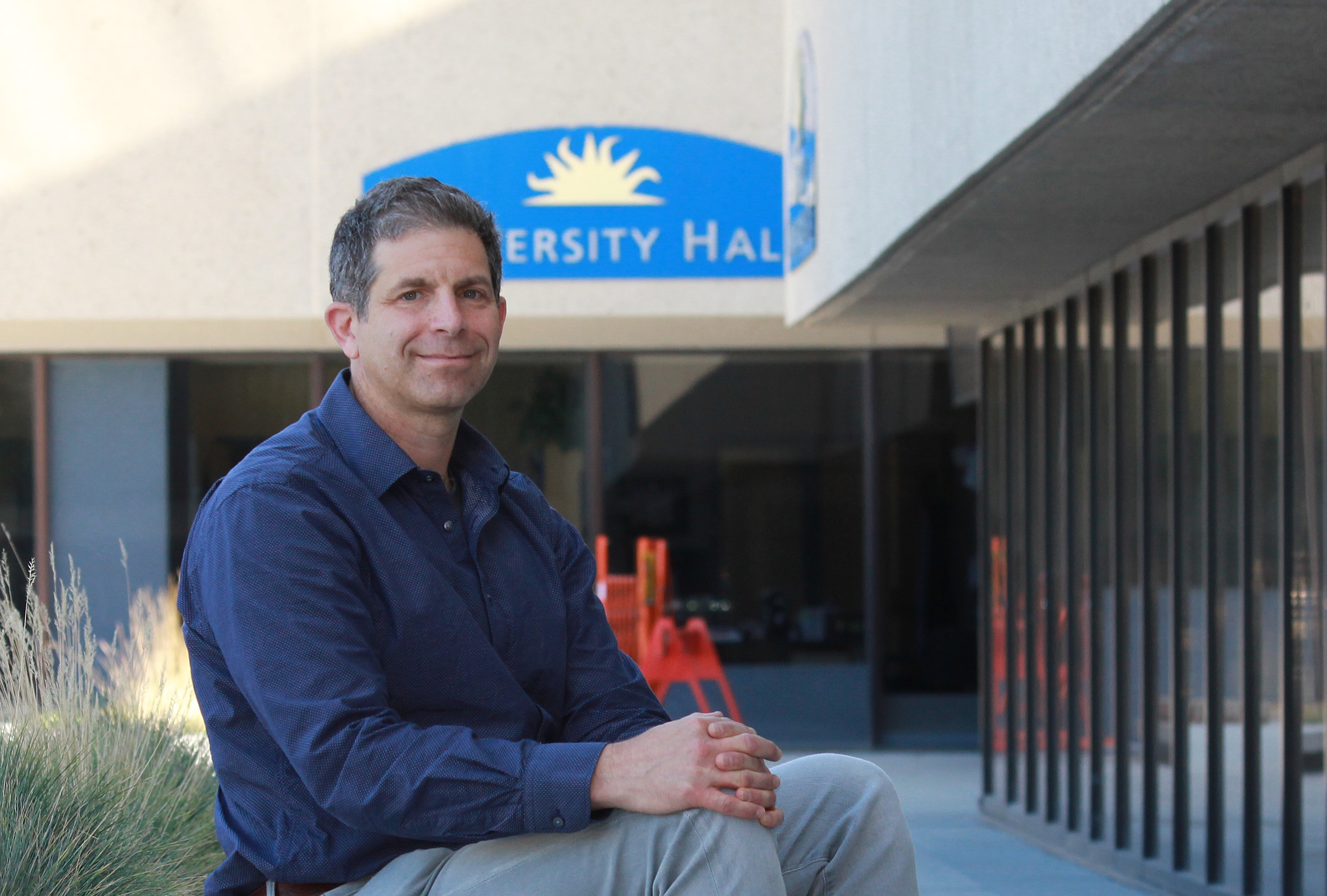 Visiting Fulbright scholar to investigate links between early stress and addiction Visiting Fulbright scholar to investigate links between early stress and addiction
As a visiting research chair, Dr. John Ziker will conduct research to test hypotheses about behavioural pathways that transmit stress from one generation to the next
September 19, 2016 | 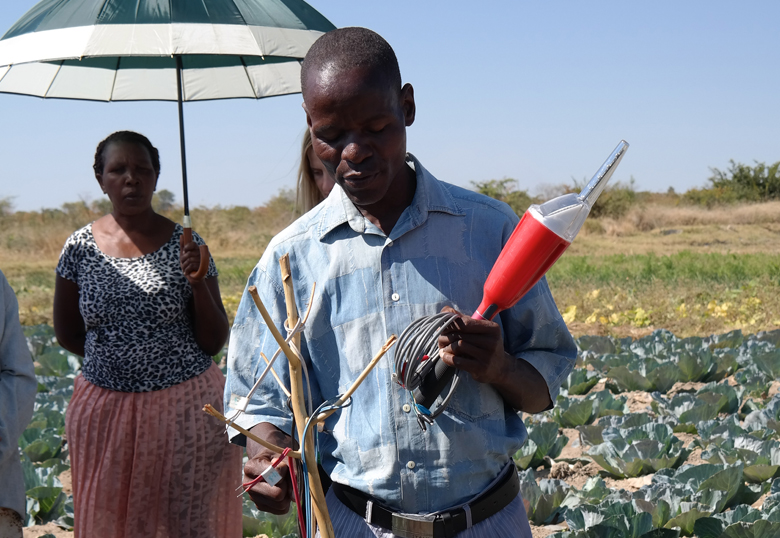 Agricultural research project benefits subsistence farmers in Africa Agricultural research project benefits subsistence farmers in Africa
Research project results in increased yields with a lower frequency of irrigating
Notable Mentions
Chemistry & Biochemistry
Dr. Paul Hayes was elected as a Fellow of the Royal Society of Chemistry. This is among the highest honours bestowed to chemists and a first for the University of Lethbridge. Fellowship in the Royal Society of Chemistry acknowledges significant achievement by professional chemists and outstanding contributions to the field of chemistry. Hayes was nominated from within the administration of the Society. Read the complete story here.
Institute for Child and Youth Studies (I-CYS)
Following the final report of Canada’s Truth and Reconciliation Commission, a team of researchers at University of Lethbridge re-imagined their research goals to focus on decolonizing methods. Read more by Kristine Alexander, Amy Mack, Jan Newberry and Erin Spring on pp. 5-6 of the October 2016 issue of Neos.
Modern Languages
On October 22 and 23, the French Language Centre (FLC) hosted a first ever Bilingual (French and English) International Colloquium in the Department entitled “Education: Practice and Representation in French.” There were some 27 participants with presenters from all over the world (USA, France, Swaziland). The first day took place at the Penny Building and wrapped up at the Galt Museum after a visit to Fort Whoop-Up. The second day was in Markin Hall and finished with a plenary session on BD (Comics) and a banquet at the Cité des Prairies, where participants watch a Cree Hoop Dance and a concert by Junkman’s Quire. The conference received many compliments thanks to all the hard work of the organizers, especially Dr. Tabitha Spagnolo and then FLC coordinatrice –
Francine Young. The FLC committee is currently working on having the conference proceedings published.
Native American Studies
Associate professor Dr. Maura Hanrahan presented two papers at the 10th Biennial Inuit Studies Conference in St. John's, NL in October. Her travel was partially funded through a U of L travel grant:
"Racism in polar exploration: A case study of the Canadian Arctic Expedition 1913-1915"
"The Post-Contact Food History of the Labrador Inuit: Social Change, Health Implications and Policy"
She also had the following paper published in Cuizine: The Journal of Canadian Food Cultures:
“Through their own efforts”: Nutrition Studies and Interventions in Early 20th Century Northern Newfoundland and Southern Labrador
Go To Top
|
|
|
Campus Life
December 9, 2016 | 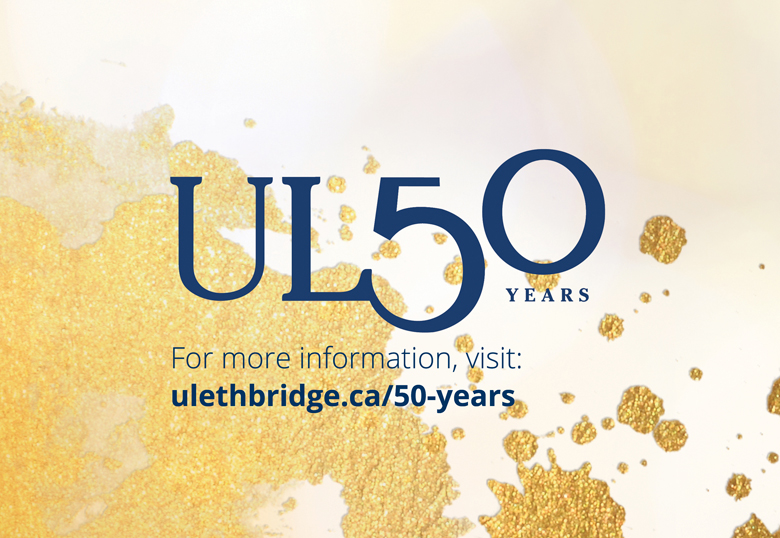 U of L’s 50th anniversary plans promise to engage community U of L’s 50th anniversary plans promise to engage community
The U of L's 50th anniversary celebrations kick off with the Founders' Day Weekend on Jan. 13 and 14
December 1, 2016 | Golden Jubilee Awards will provide $50,000 in scholarships to help celebrate the U of L’s 50th anniversary
Golden Jubilee Awards to provide $50,000 in scholarships to Arts & Science students
November 22, 2016 |  Inaugural conference focuses on how children learn language Inaugural conference focuses on how children learn language
Child speech development is the focus of a conference that will draw researchers, clinicians, teachers and parents.
November 21, 2016 | Little Yeller joins the Destination Project
After a few months of doing all of the heavy lifting, Big Yeller, the tower crane onsite at the Destination Project, has received a helping hand, or jib, to be more accurate.
November 15, 2016 | 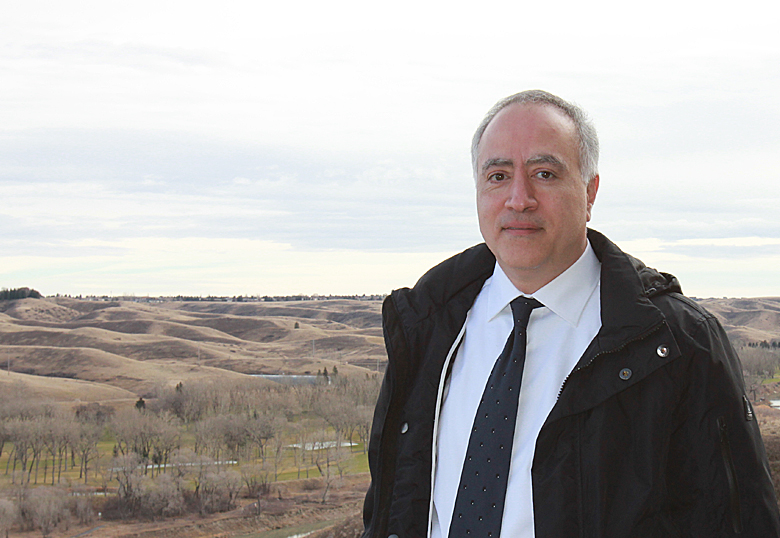 Research excellence continues to grow at the U of L Research excellence continues to grow at the U of L
Dr. Alidad Amirfazli met with junior researchers at the U of L to advise them on building their scholarly profile
October 31, 2016 | 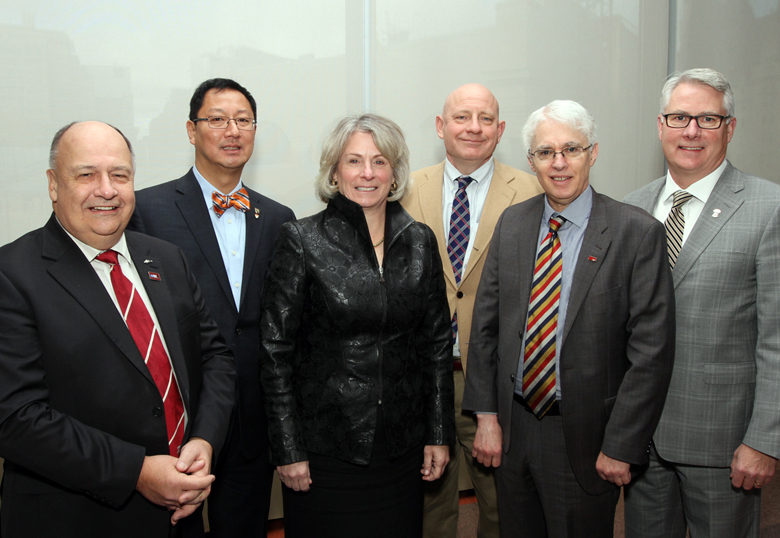 University of Lethbridge one of six Canadian universities to partner on groundbreaking health promotion initiative University of Lethbridge one of six Canadian universities to partner on groundbreaking health promotion initiative
The University of British Columbia, Simon Fraser University, the University of Lethbridge, Memorial University, Mount Royal University and the University of Calgary are the first universities to formally adopt the the Okanagan Charter: An International Charter for Health Promoting Universities and Colleges.
October 26, 2016 | University of Lethbridge strengths recognized in Maclean’s 2017 University Rankings
For the fifth consecutive year, the U of L was ranked third in the Primarily Undergraduate category, a classification of 19 universities from across the country
October 25, 2016 | Marynowski, Stewart, Lenon appointed as Tier II Board of Governors Research Chairs
Trio are committed to excellence in graduate student training and possess outstanding records of attracting highly qualified personnel
October 24, 2016 | Boots on the ground; Destination Project powers ahead
As the winter months quickly approach, work on the Destination Project is far from slowing down.
October 5, 2016 | 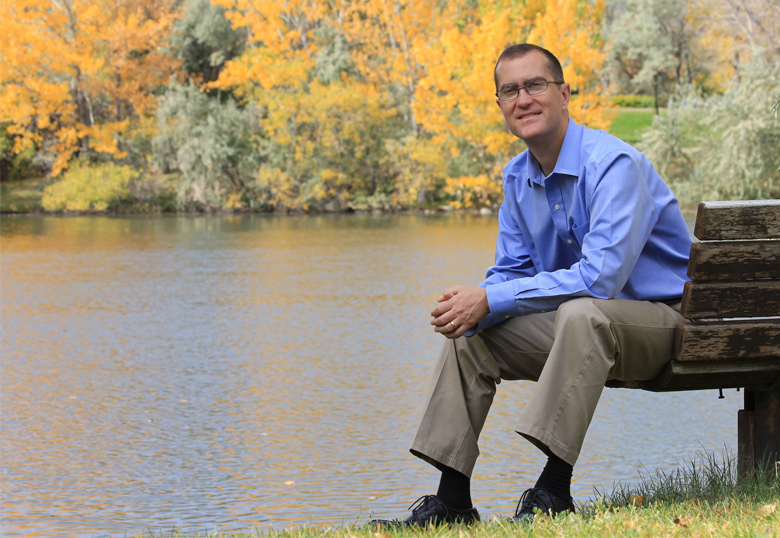 Hayes elected as Fellow of the Royal Society of Chemistry Hayes elected as Fellow of the Royal Society of Chemistry
Dr. Paul Hayes is the first U of L chemist to be elected as a Fellow of the Royal Society of Chemistry
September 28, 2016 | 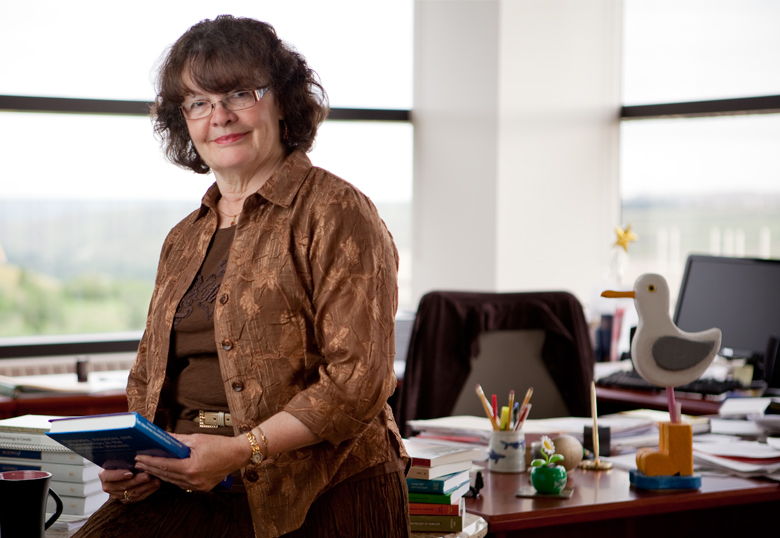 McDaniel one of three finalists for SSHRC Insight Award McDaniel one of three finalists for SSHRC Insight Award
Dr. Susan McDaniel is one of three finalists for an Insight Award
September 26, 2016 | Passing along thanks to Postdocs
As their numbers at the University of Lethbridge continue to grow, postdoctoral fellows took the time last week to hold the first ever Postdoc Appreciation Day.
September 13, 2016 |  Dr. Artur Luczak elected to the Royal Society of Canada’s College of New Scholars, Artists and Scientists Dr. Artur Luczak elected to the Royal Society of Canada’s College of New Scholars, Artists and Scientists
Dr. Artur Luczak has been elected to the Royal Society of Canada's College of New Scholars, Artists and Scientists.
September 7, 2016 | 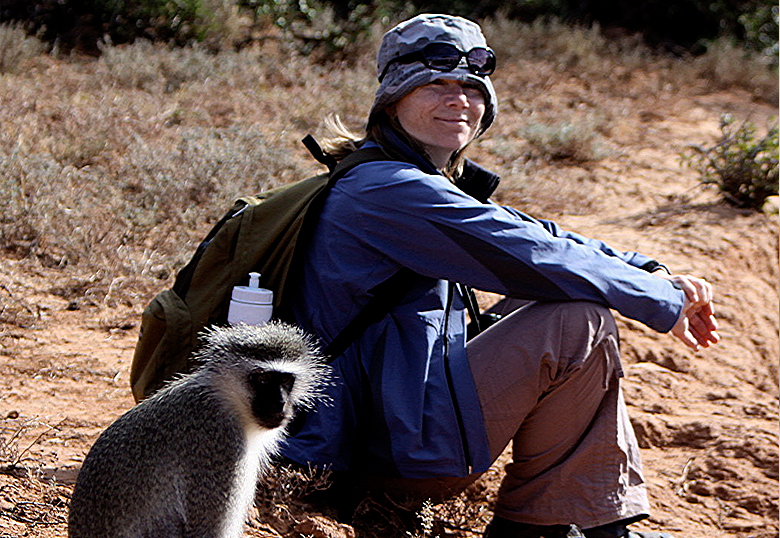 Three U of L professors elected to the Fellowship of the Royal Society of Canada Three U of L professors elected to the Fellowship of the Royal Society of Canada
Drs. Bruce McNaughton, Louise Barrett and Joe Rasmussen have been elected to the Fellowship of the Royal Society of Canada.
Notable Mentions
Chemistry & Biochemistry
For the fifth year in a row, the Let’s Talk Science Program welcomed children and parents for Spooky Science Events on October 21 & 22, 2016. This popular event has grown to take place three times over the weekend allowing 300 children to have fun with science. Due to the strong support of the Department of Chemistry & Biochemistry, in particular the Chem Guys and numerous undergraduate and graduate students, Spooky Science has once again been a success. This year, the children enjoyed colorful volcanoes, made shiny bookmarks and were fascinating by boo bubbles made with dry ice. The highlight of course was the Chem Show by Wayne and John who captivated the children with surprising reactions and let the crowd cheer: “Science is fun!!!”.
Volunteers for the event were: Catrione Lee, Alyssa Andreachuk, Paul Vanwerkhoven, Chelsi Harvey, Anne-Sophie Tillault, Jeremy Sloan, Kerri Pasula, Araba Sagoe, Maria Wagner, Luc Roberts, Fan Mo, Claire Niehaus, Connor MacNeil, Cassie Buck, Robab Hashemi, Dominic Czekay, Nathan Hill, Jalyce Heller, Darren Gemmill, Joe Sopal, Katie Wilson, Lindey Felske, Laura Keffer-Wilkes, Abeer Ogailan, Nathan Kostiuk, Erin Kelly, Courtney Seefeldt, Melissa Giddy, Michelle Cradduck, Dustin Smith.
Philosophy
The Department of Philosophy invites high-quality submissions for our one-day philosophy conference. Papers may be on any philosophical subject, and may include work originally written for other purposes. Papers will be blind-refereed with notices of acceptance sent out by late-January. Submissions should be suitable for a twenty-minute presentation, with a word limit of 3.000 words. All are welcome to attend. Submissions deadline is Monday, January 9, 2017.
Submissions and questions can be forwarded to Karl Laderoute. For more information, please visit the website.
Go to Top
|
|
|
|
|
|